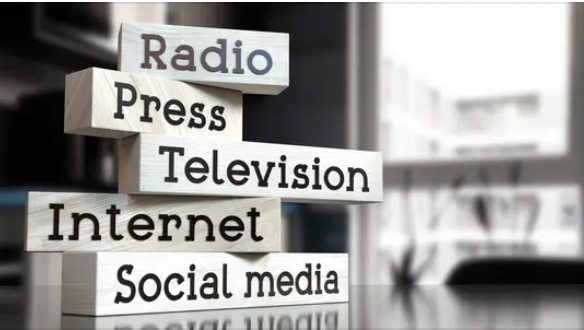In an era where information flows incessantly via digital channels, the role of the media in shaping public opinion, given the fact that the media has a significant impact on shaping public perception and societal standards. cannot be overstated. However, the question of whether media reporting is fair or manipulated remains a contentious issue. Many individuals argue that there is a deliberate manipulation occurring within the media, with certain perspectives being promoted while others are being silenced.
One of the main reasons for this perceived manipulation is the consolidation of media ownership. A handful of large corporations now control the majority of the media outlets, and thus this has led to a homogenization of news coverage. This can result in biased reporting, as these corporations may have their own agendas and interests to protect.
But anyways,Let’s delve into this complex landscape and explore the nuances.
The Ideal of Fair Reporting
Fair reporting implies presenting information without bias, distortion, or undue influence. Journalists, as the gatekeepers of news, strive to adhere to ethical standards.
The media should be transparent this means that : Media outlets should disclose any conflicts of interest, affiliations, or funding sources that might impact their reporting. It’s important not to forget that transparency builds trust.
Fair reporting involves presenting multiple viewpoints on an issue and this is supposed to be among the core ethics of the media industry . A balanced approach ensures that readers receive a comprehensive understanding. But all these at times seems to be missing
CHALLENGES TO FAIR REPORTING
Social Media Amplification:
Misinformation spreads rapidly on social platforms. Algorithms prioritize sensational content, often at the expense of accuracy. And due to that fake news could get around faster, thus overshadowing the truth, the media might give out.
 source
source
Commercial Pressures:
Media organizations operate in a competitive market. Advertisers, shareholders, and ratings influence content. Sensationalism and clickbait can overshadow fair reporting.
Political Bias: Allegations of political bias plague media outlets. Some lean left, others right. Confirmation bias can lead to cherry-picking facts that align with pre-existing beliefs. And this does not do any good to the layman who only believes the news he gets from the media, hoping it’s verified.
Through something I’ll call Selective Framing: By emphasizing certain aspects and downplaying others, the media can sway public opinion.
And also through The Digital media, the media allows people to curate their information sources. Echo chambers reinforce existing beliefs, hindering critical thinking. Which is very bad.
RESOLVING THE ISSUE
But something can still be done, to help the issue ,
Media Literacy: Educating the public about media literacy is very much important. Consumers should critically evaluate sources, fact-check, and recognize bias.
Diverse Sources of information: Seek information from diverse outlets. Cross-referencing different perspectives helps counter manipulation, and this gives the audience a chance to verify what they are being told.
 source
source
However, it is important to note that not all media outlets engage in manipulation. There are still many journalists and news organizations that strive to report the truth and hold those in power accountable. It is up to the consumers of media to be discerning and critical of the information they consume, and to seek out multiple sources to get a well-rounded view of the news.
In conclusion, while there may be instances of manipulation in the media, it is not fair to paint all media outlets with the same brush. It is important for the public to be vigilant and critical of the information they consume, and to hold media organizations accountable for their reporting. Only by staying informed and engaged can we ensure that the media remains a fair and reliable source of information.
here to join.This is my entry to the #aprilinleo Which is currently ongoing, and it’s a nice opportunity for you to get your posts curated, you can click
Posted Using InLeo Alpha

The emphasis on the ideal of unbiased reporting, transparency and the importance of media literacy is especially noteworthy. It underscores the need for consumers to critically evaluate sources and seek diverse perspectives to counter manipulation.
I appreciate the proactive approach suggested to solve the problem, including encouraging media literacy and seeking information from diverse sources.
thanks, i appreciate
You have said it, either partly but maybe, all but you said what will should know about this content nice Job
thanks for the heads up
Regards to Media manipulations, media is a wide space a lot can happen, it all depnd on how we make use, media for me is more like garbage in and garbage out, it all depend on how we takes it, and alway good use it in a good way to avoid manipulations, thanks friend for sharing